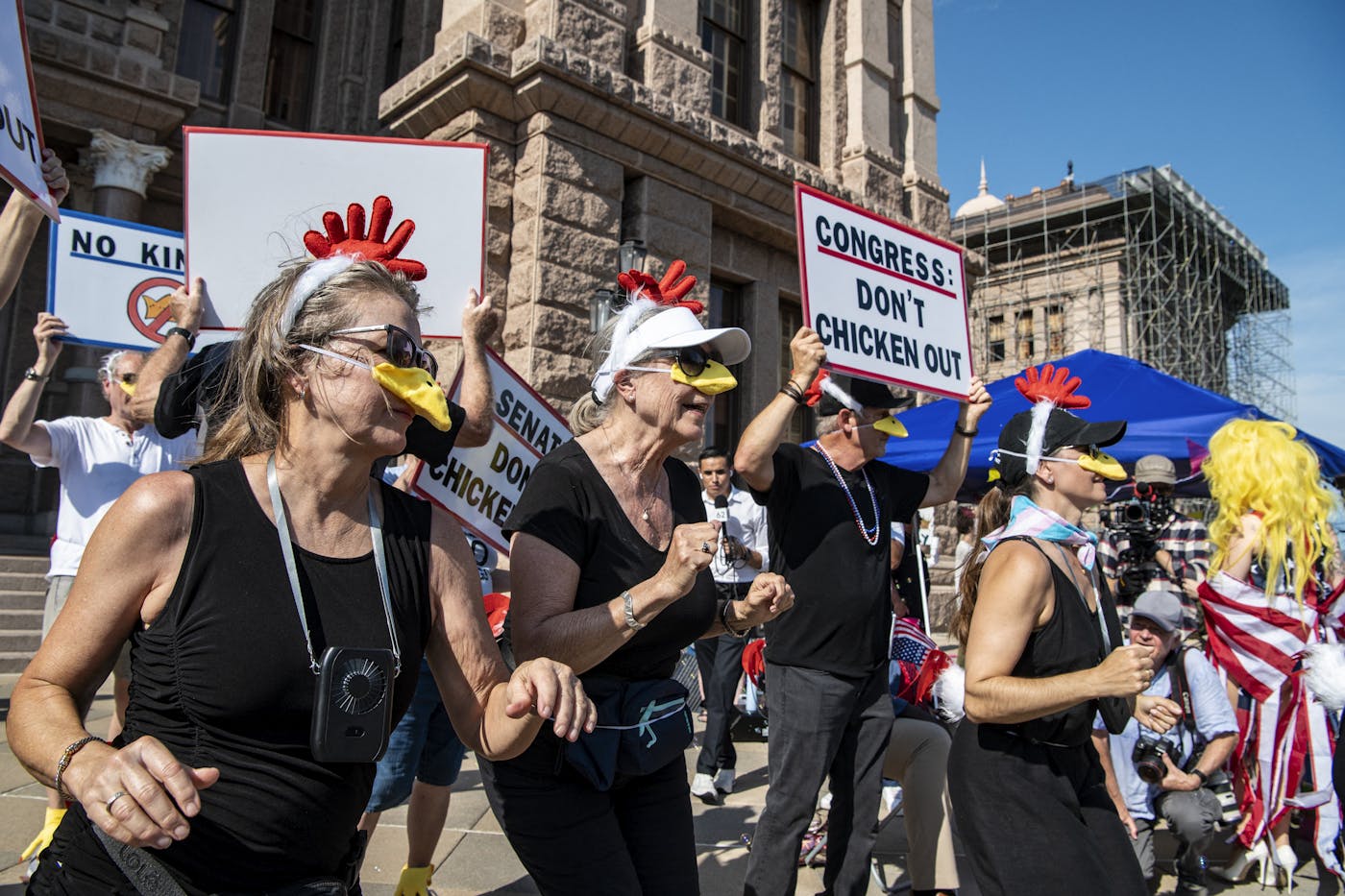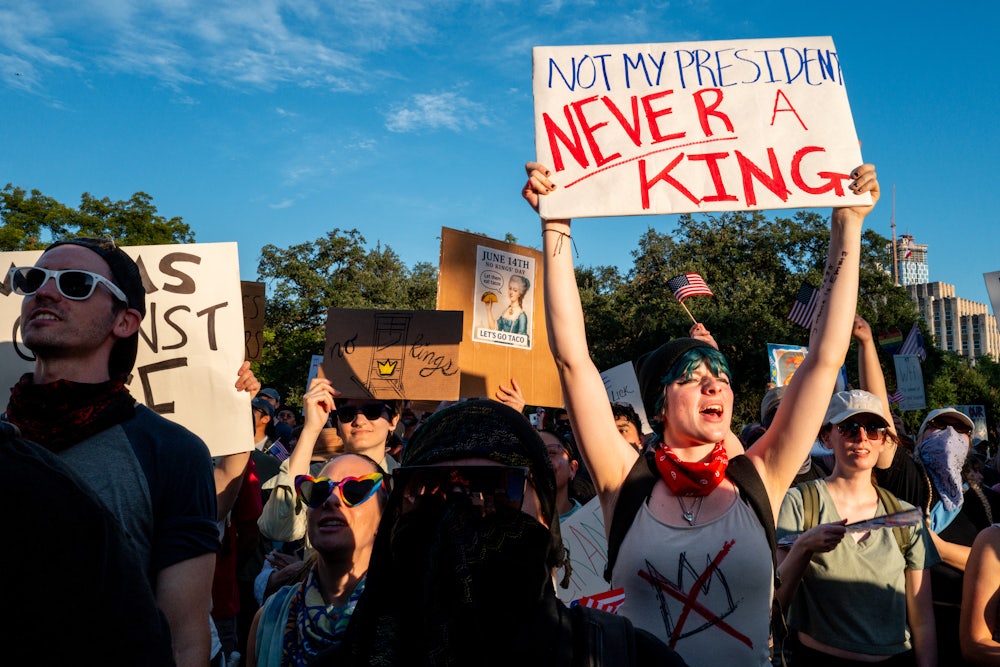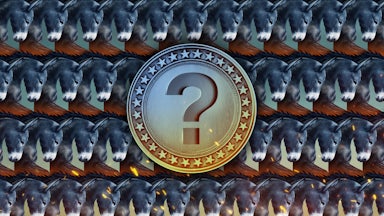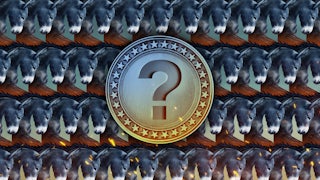The organizers of the No Kings protest in Austin, Texas, on Saturday were assembling a temporary stage in the shadow of our pink granite Capitol for drag queens and a group performance of the “chicken dance” when the building was evacuated due to a “credible threat” against the Democratic lawmakers who planned to attend the event. The Austin rally had been billed with a “Kick Out the Clowns” twist since the start, promising “parody and pageantry” and aiming to “help set a national record for the most circuses held in one day.” But current events seemed to be conspiring to make a gutsy bit of counterprogramming seem something between bad taste and grim joke.
For more than a week, images of violence against protesters in Los Angeles had blanketed our screens. On Thursday, Texas Governor Greg Abbott had preemptively called up the National Guard for Saturday’s protests. And then, in the hours before No Kings was set to kick off nationwide, a Minneapolis suburb went under lockdown after a man assassinated Democratic state Representative Melissa Hortman, the speaker of the Minnesota’s House of Representatives, and her husband. As Governor Tim Walz’s news conference played in the background, I wondered if the rally would go on—and if so, whether the brass bands, comedy, and “circus acts” they’d advertised would feel grotesquely out of tune with the mood of the crowd. If, that is, people even showed up.
But what happened at the rally was something stranger, heavier, and more honest than I expected.
By the time the protest officially started at 4 p.m., the Capitol was back open and the sprawling, shaded lawn that rolls into downtown was filled with thousands of people. The throng spilled beyond the gates partway into the streets, a cacophonous mass of types: gray-haired women handing out American flag and Pride flag stickers side by side; two young folks in midriff-baring tops holding signs citing the social justice parts of Leviticus (19:15-16, 33-34); a man and his pit bull in matching capes, each made of half the U.S. flag and half the flag of Mexico; anarchists on bicycles handing out water and popsicles; a man in a Trump wig with foundation smeared across his face, walking around with a giant Qatari cardboard airplane hanging off of his shoulders and money falling out of his pants.
People tapped each other on the shoulders to ask if they could take pictures of their signs. The Palestine supporters and the Communist Party members selling tracts for $5 (“surge pricing,” my friend joked) stood side by side with a pair of white women in matching linen sets with a sign that said, “If Kamala had won, we’d be at brunch by now.”
How bad are things in America today? For a moment, the left has embraced the flag and abandoned litmus tests. I spoke to one woman wearing a keffiyeh and crocheted watermelon earrings with a U.S. flag tied around her neck. “This is the first U.S. flag I’ve ever owned,” she said. “I’ve never wanted one before.” She said she bought it at H-E-B after Sarah Longwell of The Bulwark suggested it. “I don’t usually like to follow the suggestions of the center right but ...” she said, shrugging. She gestured out to where American flags outnumbered tie-dye T-shirts at least 100-to-1. “I think it’s working.” When I asked other people about the flags, the response was universal, angry, and something of a taunt: “It’s ours too.”
Eventually, the state troopers would estimate the turnout at the Texas Capitol at over 10,000; nationwide, the streets saw the largest single-day turnout in history. How many more people didn’t come because they were afraid? I wondered, but it’s the wrong frame: Protests of this size only happen because people are afraid.

If the organizers in Austin had hoped to kindle circus energy, what they got was something closer to the simmering mania of a fun house: lots of laughs, for sure, but shrieks as well. These days in America we are clinging to each other, feeling the whole rickety structure shaking as we walk through it. The fun we’re having doesn’t sit uneasily over danger like a mask; it is intertwined with it. And we are not the only ones in danger.
Some of the most colorful and cheerful signs at the rally were limned with threat: the gilded, glittering guillotines; the one that asked, “Can we skip to the part where he shoots himself in the bunker?” I saw someone hand out “Is he dead yet?” stickers to scores of grabbing hands. The metaphor of the day almost demands violence: It’s hard to remove a crown without at least threatening to shed some blood.
Democrats and liberals in Washington have been unwilling to grapple with that truth. Elsewhere, the mood seems to be shifting. You can see it in these gleeful signs all but calling for the physical removal of our president—and you can see it in what pop culture references have surfaced as the calling cards of this particular moment. One of the official downloads from the No Kings “brand folder” site was plain lettering: “I have friends everywhere.” It sounds like solidarity, and it is, but it’s also the password among violent resisters on the Disney+ Star Wars series Andor. “I have friends everywhere” summons community, but in the language of Andor, what you are saying is, I am willing to kill or die for you.
And that was just the sign that was available from the official website. On Instagram and Bluesky, people sent me sightings of other Andor references, including bits of the anti-empire manifesto in season 1: “Freedom is a pure idea. Tyranny requires constant effort. It breaks, it leaks. Authority is brittle. Oppression is the mask of fear.” The Andor community on Reddit collected dozens of examples of the show’s rhetoric from Detroit to Richmond, San Diego to Philadelphia. In Austin, I also saw a sign quoting the line “Rebellions are built on hope.” Again, superficially, almost treacly in its sweetness but drawn from a show that is about the grit and the darkness that real resistance movements demand.
It’s been a long time since the left called this full-throatedly for revolution. I have to assume that Democratic leaders don’t really know what’s happening, as they’re so easily spooked by even the softest intimation of uprising. Set a shopping cart on fire, and you will be scolded. Smash a store window, and you will be denounced.
Andor has politicians too. But they’re not the ones quoted on signs—the characters who smash things are. When Senator Mon Mothma gives the series’s most fiery, explicitly political speech, it’s because she knows she’ll be escorted out of the building by an armed revolutionary.
One young man I spoke to, the child of undocumented immigrants, teared up when he talked about the fear in his home—his parents afraid to go to work, neighbors afraid to go to the grocery store, everyone afraid of being literally dragged away. He too wore an American flag like a cape. “Mostly I’m afraid to think about the future,” he told me. “But being here? I feel a little better. I know I’m not alone.”
And maybe that’s what the Andor references get right. Not the slogans or the memes but the tension that lives under every chant, every passed sticker, every glitter-glued guillotine: that real rebellion is not clean, not cinematic, not safe. It’s built by people who are afraid—and still show up. In Austin, they showed up with bracelets and bandannas, flags, and popsicles. They danced the chicken dance while the shadows gathered. They came because they were scared. They stayed because they have friends everywhere.






